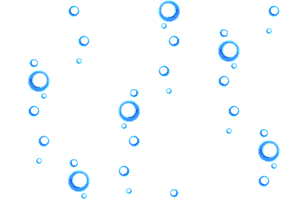
Academy of Underwater Arts & Sciences Presenter of the NOGI Award


Stefanie Martina
Dive Medicine & Safety Research – 2017
Stefanie Dawn Martina is a master’s degree candidate studying kinesiology with an exercise and work physiology focus at the Memorial University of Newfoundland (MUN). She is currently conducting her thesis research under the guidance of Dr. Heather Carnahan at the MUN-affiliated Ocean Safety Research lab at the Marine Institute and the Offshore Centre for Safety and Survival. Her professional aspirations are to then complete a doctoral degree and pursue a career in extreme environments physiology and human factors research, particularly related to diving and the marine environment.
Stefanie’s passion for scuba diving flourished quite unexpectedly. Although she grew up near the beaches of North Carolina, she feared the ocean. She decided to take on an open water course in efforts to overcome this. Little did she anticipate that the experience would ultimately impact her entire life trajectory.
Intrigued by the body’s ability to adapt to such unusual conditions, Stefanie feverishly sought to learn more. Her first exposure to diving safety research was as an undergraduate intern at the Navy Experimental Diving Unit. After completing her Bachelor in Science degree program at the University of North Carolina at Chapel Hill, she was offered a research internship at Divers Alert Network (DAN). Working with Dr. Neal Pollock, she maintained the apnea diving fatalities database and learned to perform transthoracic echocardiography (TTE) for decompression stress monitoring.
She was subsequently hired as research assistant at the Duke Center for Hyperbaric Medicine and Environmental Physiology. She was part of Dr. Richard Moon’s team investigating immersion pulmonary edema (IPE) in divers and triathletes. This instilled her passion about raising IPE awareness and contributing to education and safety outreach. She was also involved with various other projects on topics such as flying after diving with Dr. Richard Vann; nitrogen, oxygen, and carbon dioxide narcosis with Dr. Jake Freiberger; and epigenetic effects after diving with Dr. Dawn Kernagis.
Stefanie then returned to DAN as research associate. Working once again with Dr. Pollock, she performed TTE for field dive monitoring of technical, rebreather divers and for NASA-funded hypobaric decompression stress studies. She became a certified phlebotomist and collected blood samples for microparticle analysis. She also worked with the medicine department to develop a novel protocol for and perform follow-up on calls to the medical hotline.
Stefanie is now conducting her thesis research on a unique application of scuba – its use for helicopter emergency escape, particularly in the offshore oil and gas industry. Her project aims to investigate the interactions of stress, learning, training fidelity, and performance. Specifically, the research will assess how different lighting levels (and thus varied ability to see) may impact these factors. The research is applicable to high-stress activities and related training, especially those that may occur without light availability, such as cave diving. Intentions are to inform future training programs and safety protocols.
Concurrent to seeking academic advancement to aid in reaching her dreams, Stefanie acknowledges and embraces the integral role of engaging in lifelong diving education, training, and skill refinement. She was recipient of the 2017 Women Divers Hall of Fame Advanced Dive Training Grant to aid in pursuing technical diving training. Her goal is to be able to complete technical and cave diving training so that practical knowledge and experience can be applied to future research and communications of findings and practical safety applications with the advanced diving community can be more effective.
